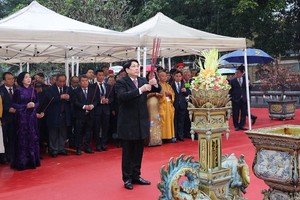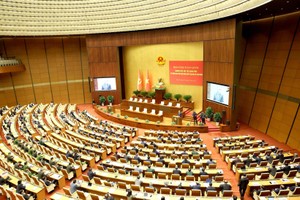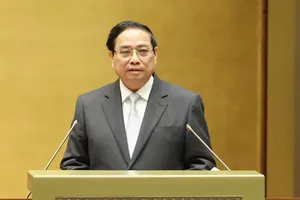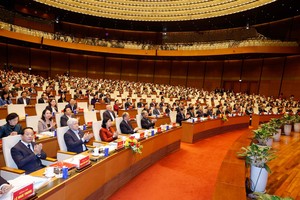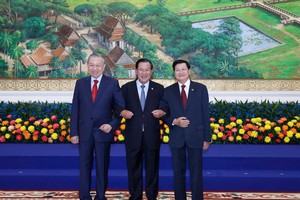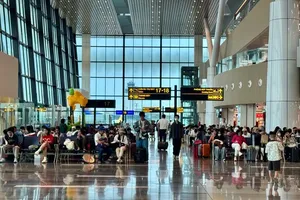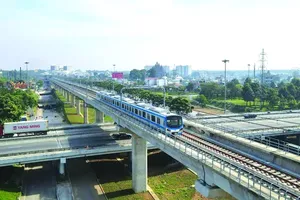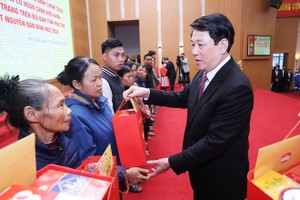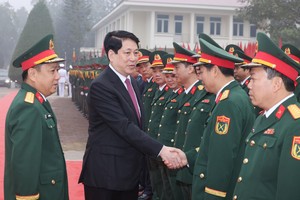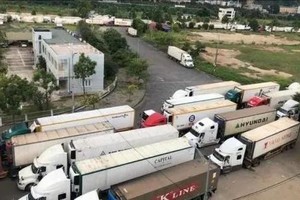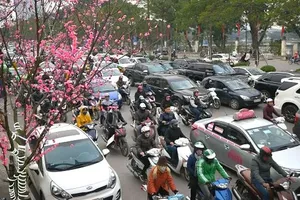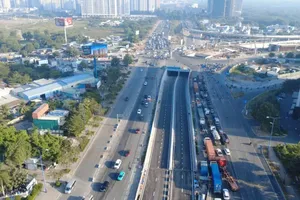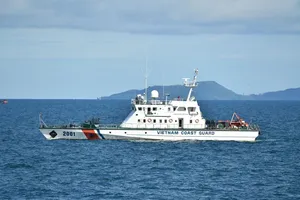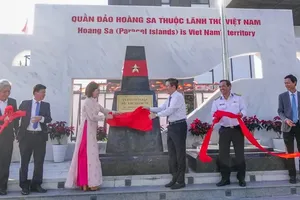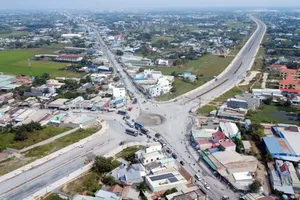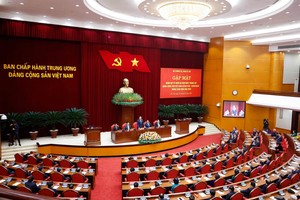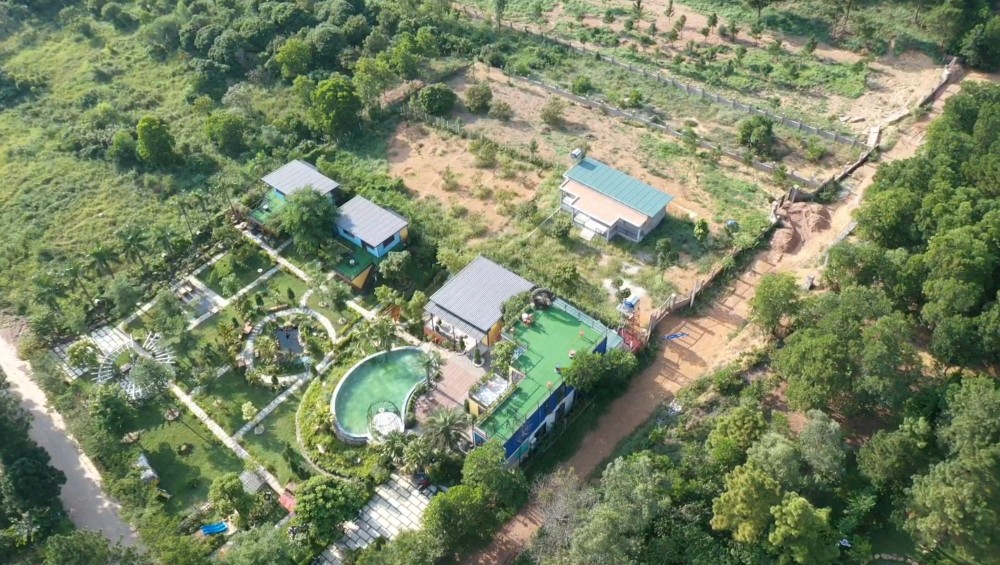 |
One of the solid accommodation structures near Ban Tien Lake |
After reports on forest land encroachment in Soc Son District for illegal construction works at the end of 2018, Hanoi decided to carry out a comprehensive inspection. In March 2019, a conclusion was released, saying that there were actually nearly 800 such law-breaking constructions in the two communes of Minh Phu and Minh Tri as well as the neighborhood of Ban Tien Lake, Dong Do Lake. The Soc Son District People’s Committee was asked to immediately address the issue.
However, until now, the land encroachment status in Soc Son District has not stopped. On the contrary, the situation seems to be more complicated with even more new construction works erected. Many hills and mountain sides as well as several forest land lots are being uncontrollably destroyed. The green color is gradually changed to dark red of soil being dug up. Not far from them are rows of newly built homestays and resorts, some being extremely near the banks of the two lakes.
Near the landslide site this August in the neighborhood of Ban Tien Lake (Minh Phu Commune), at least five houses, farms, homestays are solidly built, with full facilities to serve tourists (swimming pool, flower gardens, grass area for a playground). A little farther are many land lots covering thousands of square meters and surrounded by walls. These have already been bought by people from other places.
At the beginning of this September, just after the landslide incident to damage many cars near Ban Tien Lake, the local authorities closed the concrete road self-built by residents to link to homestays there and forced one construction work on Dong Chum Hill (next to Ban Tien Lake) as it had been erected on the protection forest land. Nevertheless, the other 5 constructions also in this area were still in operation and welcomed a large number of tourists at weekends.
Vice Chairman of the Minh Phu Commune People’s Committee in charge of economic and land-use matters said in general that the local authorities are in the process of preparing sufficient documents to punish violation cases of forest land encroachment. Yet he did not mention when to handle the situation or who to take the blame for this violation in such a long time.
About 2km away from Ban Tien Lake is the large and charming Dong Do irrigation lake, considered the entertainment hub of Soc Son District with a lot of resorts, homestays, farms, restaurants, coffee shops for tourists. Around the lake, there are even places being leveled to prepare for trading to earn profit. What is worth mentioning is that they are built or leveled right at the margin of forest land or lake banks without any warning from the authorities.
It is not hard to find similar cases in the West of Hanoi like the communes of Dong Xuan, Phu Cat, Phu Man (in Quoc Oai District), Thach Hoa, Yen Binh, Tien Xuan (in Thach That District), and other communes in Ba Vi District.
5km away from the Culture-Tourism Village of Vietnamese Ethnics in Yen Bai Commune of Ba Vi District, tens of homestays are being built after forest trees have been chopped down to have a beautiful view over Xoi Village Lake. Right in the center of Xoi Village Valley is Thang May Eco-tourism Resort, constructed a few years ago with 20 solid villas, swimming pools, grass areas, camping sites, and a concrete road to transport materials. Many structures are on encroached land of thousands of square meters.
Vice Chairman of the Yen Bai Commune People’s Committee informed that Ba Vi District held an auction session and delivered the land use right permits for 10 households to erect construction works in Xoi Village Valley. However, he admitted that the building process did negatively affect the natural environment there, and thus a warning was sent to minimize this influence. He then stressed that despite this construction, there is absolutely no such risk of landslide as in Soc Son District.
In the neighboring commune of Van Hoa, especially in the hill next to Ba Vi National Park, the situation of land leveling and deforestation to build resorts and homestays is also rather complicated. Local residents said that the site for such structures used to be for growing perennial crops. These land lots were then sold to people from other places to build modern tourism structures.
